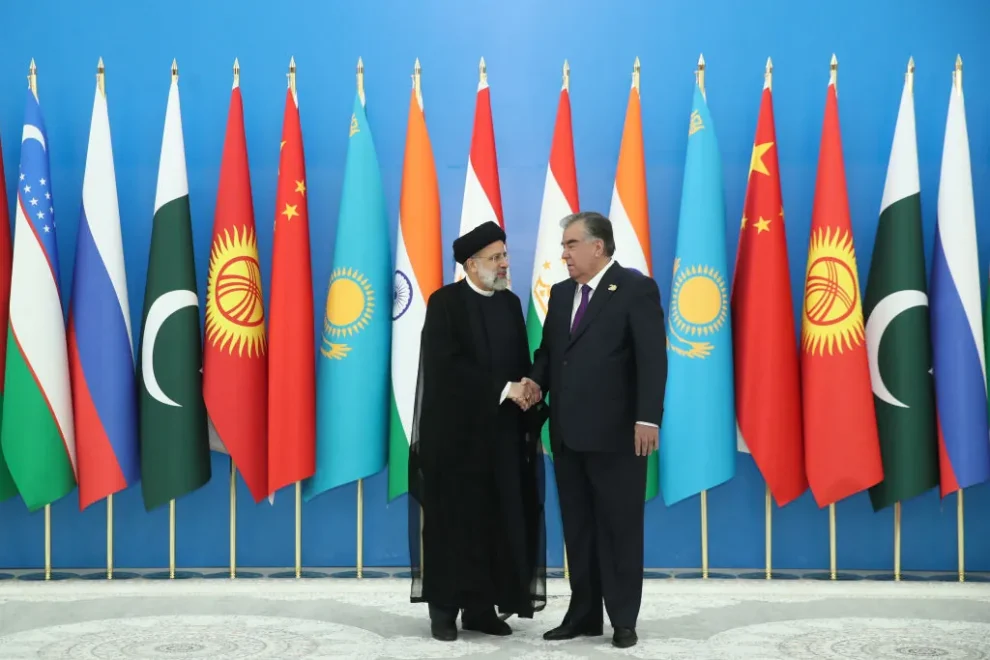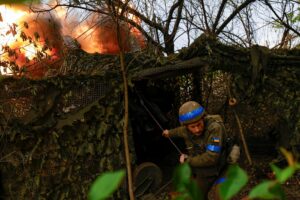Tehran and Dushanbe expand military cooperation
Tajikistan and Iran agreed to conduct joint military exercises, cooperate in the field of military intelligence and continue the production of Iranian drones on the territory of the Central Asian republic. These are the results of the two-day visit of the Minister of Defense of the Islamic Republic of Iran (IRI), Major General Muhammad Reza Ashtiani, to Dushanbe. President Emomali Rahmon and the Iranian military leader discussed issues of regional security and military cooperation.
Iranian Defense Minister Muhammad Reza Ashtiani visited Dushanbe on October 17–18. This is his first visit to Tajikistan after the start of the “thaw” in relations between the two countries, which were spoiled in 2015 at the instigation of ill-wishers. The union of Tajikistan and Iran, two Persian-speaking countries, seemed like a risky geopolitical partnership. But the main cause of the conflict is considered to be the visit of the leader of the Islamic Renaissance Party of Tajikistan, banned in the Russian Federation, Muhiddin Kabiri to Tehran, where he met with Ayatollah Ali Khamenei, the spiritual leader of Iran. In Dushanbe, this visit was viewed as support for the opposition and Tehran was accused of involvement in the coup attempt, in which Kabiri was allegedly involved. In response, Tehran demanded the return of the assets of the arrested Iranian billionaire Babak Zanjani, who owned property in Tajikistan and kept money in the local National Bank. At home, Zanjani was accused of embezzling billions of dollars belonging to the Ministry of Oil and demanded their return. However, the conflict did not develop.
Meanwhile, Dushanbe realized that in the context of conflicts on the Tajik-Kyrgyz border and taking into account the situation in Afghanistan, Iran could be one of the countries that would support Tajikistan. Therefore, with the coming to power of the new President Ibrahim Raisi in Iran, Tehran and Dushanbe began relations from scratch. A roadmap for economic, political and military cooperation was drawn up, and meetings at various levels became more active. Until 2015, Iran was one of the five importing countries of Tajikistan. Today Iran is restoring its position in the trade and economic sphere. Iranian investments and advanced technologies available in Iran are important to Tajikistan for the implementation of economic and infrastructure projects in the republic.
In September 2021, President Ibrahim Raisi visited Dushanbe and took part in the Shanghai Cooperation Organization (SCO) summit as an observer. And in May 2022, Rakhmon visited Iran (see “NG” dated 05/29/22). After resolving all controversial issues, Iran was admitted to the SCO as a permanent member. Let us recall that it was Tajikistan that for a long time blocked Iran’s entry into this regional organization.
General Ashtiani, taking advantage of his visit to Dushanbe, expressed gratitude to the Tajik authorities for their support in the issue of Iran’s membership in the SCO. At the talks, Rahmon and Ashtiani emphasized the intensification of modern threats and dangers, especially in the context of terrorism, extremism, drug trafficking and transnational organized crime.
The Minister of Defense of Tajikistan, Colonel General Sherali Mirzo, also discussed cooperation in the defense sector with his Iranian counterpart. Major General Muhammad Reza Ashtiani said that Tajikistan plays a special role in Iran’s foreign and regional policy. “Relations between the two countries are based on brotherhood and constancy,” the Iranian minister emphasized. The heads of the defense departments talked about plans for military cooperation and the development of military-technical ties and discussed in detail the issues of information exchange and joint training in the fight against terrorism.
Since May 2022, a plant for the assembly of Iranian Ababil-2 drones has been operating in Tajikistan. The facility was opened by the Chief of the Iranian General Staff, Mohammad Bakiri, and the Tajik Minister of Defense, Sherali Mirzo. According to an NG source in Tajikistan’s military circles, drones are produced in small quantities, in accordance with the needs of the republic’s armed forces: “Training and training of operators to control unmanned aerial vehicles are underway. Ammunition production is being increased. It is important to note that these actions in no way run counter to the interests of Russia or China, with whom Tajikistan also maintains close military cooperation. Ashtiani emphasized that Tajikistan can rely on support, including military, from Iran.”
When asked by NG about whom Tajikistan is arming itself against, given the presence of the 201st Russian military base in the republic, the interlocutor said that he does not rule out conflicts on the Kyrgyz-Tajik border. Negotiations are currently underway, which may be of a simulation nature, aimed at reducing tensions between the parties. In addition, neighboring Kyrgyzstan is strengthening its army with the support of Turkey, but it is worth noting that the latter cooperates with various countries in the region, including Tajikistan, and, despite language differences, supplies weapons to Dushanbe.
Institute of World Economy and International Relations of the Russian Academy of Sciences, corresponding member of the Academy of Sciences of the Russian Federation Irina Zvyagelskaya told NG that strengthening relations between Tehran and Dushanbe is logical, especially considering the ethnocultural proximity of the states. She points to factors that explain the convergence. On the one hand, Tajikistan is trying to protect itself from threats from Afghanistan. But, according to Zvyagelskaya, now the Taliban (an organization banned in the Russian Federation) is busy with internal issues and probably does not intend to attack other countries. Tajikistan is also seeking to diversify military ties, given cultural and historical similarities with Iran. “Tajikistan’s actions do not mean a abandonment of its existing obligations, in particular within the framework of the Collective Security Treaty Organization, and do not lead to a weakening of ties with the Russian Federation. These are rather attempts to ensure that potential threats are minimized,” emphasized Irina Zvyagelskaya.
Source: NG Ru















